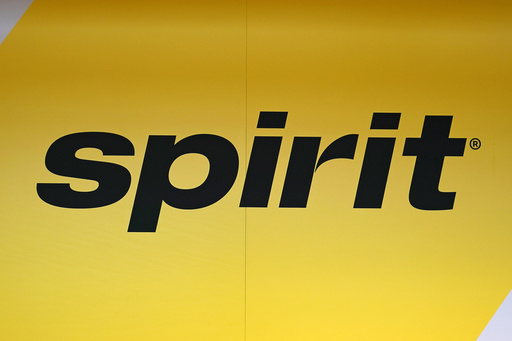
Spirit Airlines, recognized as the largest low-cost airline in the United States, has announced its filing for Chapter 11 bankruptcy protection on Monday. The budget carrier emphasized that passengers should not expect any disruptions to their travel plans during the bankruptcy process.
This filing comes after years of financial difficulties for the Fort Lauderdale-based airline, which offers no-frills travel options. Spirit has struggled to recover from the economic impacts of the COVID-19 pandemic, facing rising operating costs and increased competition in the airline industry. Since early 2020, the airline has recorded losses exceeding $2.5 billion while accumulating substantial debt.
The Chapter 11 proceedings are intended to reorganize Spirit’s financial structure and stabilize its fiscal situation. However, uncertainty surrounding the bankruptcy filing could lead some travelers to seek alternative airlines as the busy holiday season approaches.
Travelers may wonder how the bankruptcy affects their upcoming flights or accumulated loyalty points. Currently, Spirit assures its customers that operations will continue as usual throughout the bankruptcy process. Passengers can still make bookings and board flights without any interruptions.
Existing tickets, loyalty points, credits, and benefits from the airline’s credit cards remain valid, according to Spirit. To maintain customer confidence, especially in the short term, it is critical for Spirit to reassure travelers that their travel plans and loyalty programs will not experience any disruption, as pointed out by a financial services expert.
Sarah Foss, the global head of legal at Debtwire, remarked that travelers planning December trips may hesitate to book with Spirit due to its bankruptcy status, potentially opting for more stable airlines like Southwest or Delta instead. As long as Spirit successfully negotiates with lenders soon and navigates away from broader liquidation, it is expected that frequent flyer miles and other loyalty programs will remain unaffected. Nevertheless, the response of passengers to the Chapter 11 filing could complicate the airline’s recovery efforts.
According to estimates, Spirit has around 34.3 billion unredeemed frequent flyer miles, valued at approximately $105 million. A sudden rush to redeem these miles or switch to competing airlines for holiday plans could substantially hinder the airline’s restructuring process.
As for future flight availability, Spirit has stated that its scheduled flights will not be impacted at this time. However, prior to the bankruptcy declaration, the airline had already signaled a reduction in capacity and plans to decrease the number of flights offered in the next few months.
Spirit is set to reduce its schedule by almost 20% from October through December compared to the same timeframe last year. Additionally, the airline has grounded several Airbus jets required for maintenance, particularly involving Pratt & Whitney engines. While a diminished flight schedule may help boost Spirit’s fare prices, analysts predict that rival airlines like Frontier, JetBlue, and Southwest are likely to benefit from this situation due to overlapping flight routes.
The airline operates flights across the United States as well as destinations in Latin America and the Caribbean. Its primary hub is at Fort Lauderdale-Hollywood International Airport in Florida, marking it as the largest airline at that location and catering to 30% of travelers there as of August, according to Transportation Department statistics.
Another significant hub for Spirit is Orlando International Airport, where it ranks just behind Southwest in passenger volume, outperforming other competitors like Delta, Frontier, and American Airlines. Major operations also occur in cities such as Las Vegas, Atlanta, and Los Angeles, and Spirit maintains its largest maintenance facilities in Detroit and Houston.
Despite being the largest low-cost carrier, Spirit Airlines faces growing competition from other budget airlines. The company has seen increased losses as more rivals introduce their low-cost, no-frills flight options. Key competitors include Frontier and JetBlue, both of which have previously attempted to merge with Spirit; however, their latest merger proposal was rejected this year after a ruling sided against it, deeming it potentially harmful to consumers relying on low fares.
Additionally, established major airlines now offer competitive pricing schemes, with Southwest’s “Wanna Get Away” fares and Basic Economy classes from United and Delta becoming increasingly popular among budget-conscious travelers.
